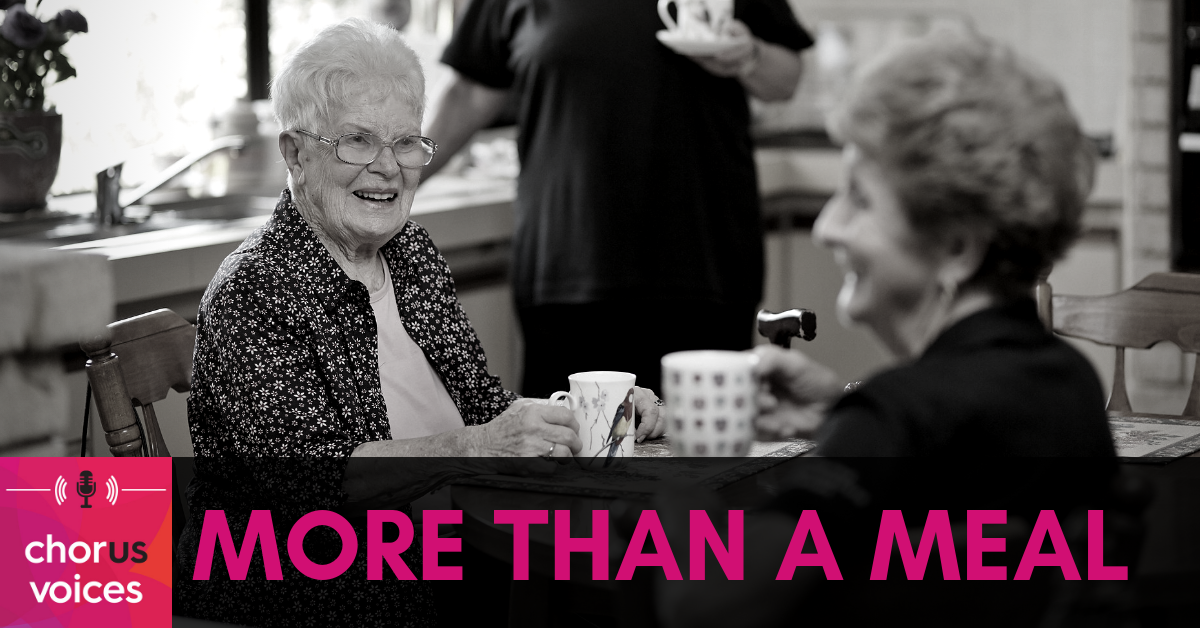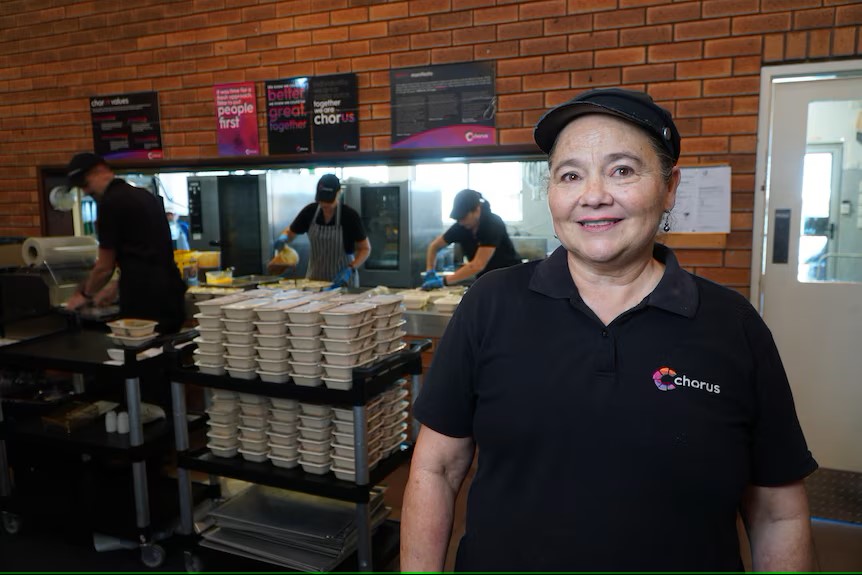Listen Now
Or listen on: Apple Podcasts | Soundcloud | Spotify | YouTube
As we get older our food culture can change. Getting to the shops, preparing meals, having people to eat with, as well as social and health changes can all impact on our ability to meet nutritional needs.
In this episode we look at our social connection with food, and drill into the nutrients and foods that can help us as we age.
What’s on the menu today?
Dan Minchin and Louise Forster discuss how food and eating are intrinsic parts of our lives and what this can look like as we age.
“Sometimes people lose their appetite, whether it’s because they don’t taste and smell as well as they used to, or because cooking for one or cooking for two is not quite as inspiring as it used to be and people lose confidence,” says Dan.
Good nutrition: What does it mean and how do we get it?
Frances Sheehan talks to Judith Hatton about the key nutrients that seniors need, like calcium, Vitamin D, B12 and potassium. Frances gives a comprehensive list of the foods that are high in senior-friendly nutrients including legumes, eggs, colourful fruit and vegetables, and wholegrains.
“Aim for three serves of calcium-rich food per day,” says Frances. “Dairy, milk, cheese, yogurts, canned fish with soft bones are fantastic.” Fibre is important as it not only keeps us regular but can also lower the risk of Type 2 Diabetes and heart disease.
Frances also looks at how much food older adults should be consuming and whether we need less salt.
“Should food be considered as preventative health care?” asks Judith.
“Good food promotes health and wellbeing and reduces the risk of diet-related conditions such as hypertension, high blood pressure, high cholesterol, and being overweight and obese,” says Frances. “It also reduces the risk of chronic diseases.”
Judith asks: “What red flags are there that someone isn’t getting their nutritional requirements?”
Weight fluctuations, skin tone and being lethargic or depressed can be signs. Loss of appetite and being unwell, for example, after a spell in hospital can also be red flags.
Dietary restrictions and taste
Judith takes a lunch break with Gigi Warren at Chorus Kitchen and learns how appetite can change when we get older. Gigi dispels a myth that older people should be eating bland food and maintains that the appearance and taste of food is important.
Gigi also talks about dietary restrictions which include reduced appetite due to illness and medical conditions.
“The bad thing about dietary restrictions is it can really reduce the type of amount of food an older person can eat, and this can increase their risk of malnutrition,” says Gigi.
Chorus Kitchen bridges the gap between not being able to prepare food and still getting nutritional requirements.
“We can deliver fresh meals every day,” says Gigi. “The customer needs to be home. So, that’s a big positive because if they don’t answer the door, we will check on them.”
A recipe for a good life
“Getting the calories in is really just a stepping stone to living a good life,” says Dan. Create a recipe combining nutrition and connection and you’ll have something special.
“Seeking support is really helpful in understanding that there are people out there that can help identify perhaps nutritional needs or gaps and how someone can overcome those or support someone else to overcome those,” adds Louise.
Mentioned in this episode:
Flow by Mihaly Csikszentmihalyi
Download Chorus Seniors Nutrition Fact Sheet:
Credits:
Podcast Hosts: Louise Forster and Dan Minchin
Opening Voiceover: Ryan Burke
Music: Wattlebird by Dylan Hatton Music
Interviewer: Judith Hatton
Story Editor/Producer: Judith Hatton
Production: Matthew Clark
Executive Producer: Meaghan Ferries
Special thanks to:
Frances Sheehan, RAS Assessor, Chorus
Gigi Warren, Meals Services Team Leader, Chorus Kitchen
Thanks for Listening!
Thanks for tuning into this episode of the Chorus Voices Podcast. If you find yourself inspired by these stories, head to our website and learn more about what we’re doing.
If you enjoyed this episode, please pop into Apple Podcast and leave us a review! Thanks for listening, and we’ll see you next time.
Connect with Chorus




